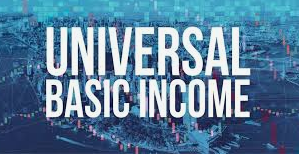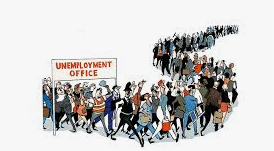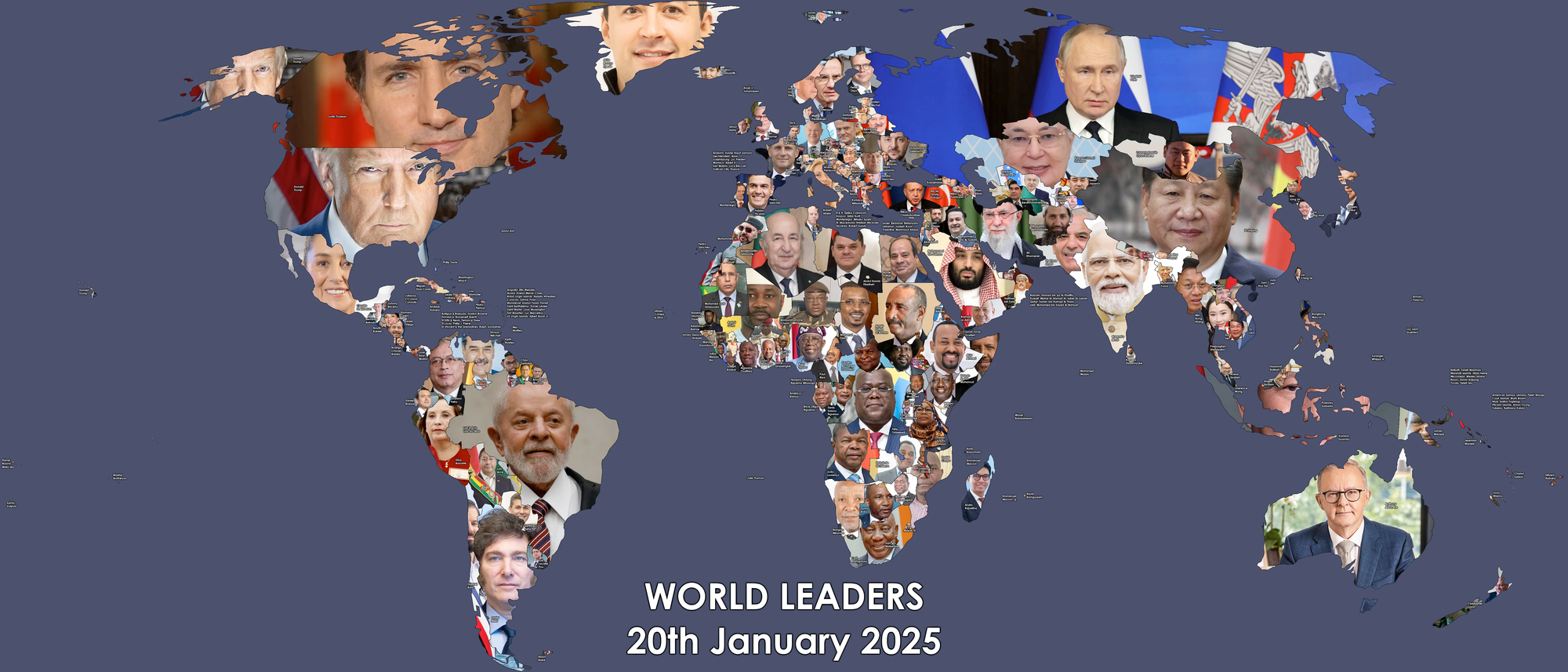Lufthansa: the AI canary in the coal mine

TetleysTLDR: The summary
Lufthansa’s 4,000 AI-driven job cuts show why governments must stop dithering and start taxing tech profits to fund survival. When Lufthansa calmly announces it will cut 4,000 administrative jobs by 2030 thanks to artificial intelligence, it’s not 'business efficiency', it’s a harbinger. The airline isn’t shrinking; it’s boasting of stronger profits. What’s really happening is that well-paid, 'safe' white-collar jobs are being fed into the algorithms. HR, finance, compliance, whole departments gutted in the name of digital optimisation. This is capitalism’s endgame: machines replacing people, corporations hoarding the gains, governments looking the other way. The fantasy that re-skilling alone will save us is dead. Universal Basic Income (UBI), once sneered at as utopian, is now the only serious answer. The productivity windfall from AI could bankroll it many times over, if leaders have the guts to tax Big Tech and their corporate imitators.
The alternative? A world where CEOs cash in, workers starve, and the social contract collapses.
TetleysTLDR: The article
Lufthansa’s recent announcement that it will eliminate 4,000 administrative roles by 2030, largely thanks to AI, should set off alarms, not just at airline HQs, but in every government, every boardroom, and every union hall. Reuters
This isn’t the story of millennials losing call-centres jobs. It’s the beginning of a structural shift: automation is now targeting middle-management, back offices, decision support, and even strategy. This is exactly what was predicted. The question is no longer if radical automation will shrink the space for paid labour, it’s how society will respond.
During COVID we had furlough. This wasn't a Government doing the right thing because they wanted to. It was a Government doing something because they had to. Imagine what would have happened if they hadn't introduced furlough. It was a measured response to prevent the contry descending into chaos.
And that’s where Universal Basic Income (UBI), once dismissed as utopian, begins to look inevitable.
Part I: What Lufthansa’s move really tells us
1. Displacement is migrating upward
Lufthansa is explicitly focusing on administrative, non-operational jobs. In other words, these are not baggage handlers or pilots, but staff involved in HR, planning, accounting, compliance, data analytics, etc. AP News
These are the kinds of roles that have long been seen (wrongly) as safe from automation. But AI’s current strengths, natural language, process optimisation, pattern recognition, map precisely to tasks in these functions. What was once considered skilled labour is now within AI’s reach. The displacement frontier is advancing.
2. Profit motives will accelerate the trend
Lufthansa plans to deepen integration across its group, consolidate redundant processes, reduce duplicated work, and cut costs. AP News The calculus is straightforward: human labour is expensive and variable; AI and digital systems become cheaper over time. If AI can do even 80% of what a human administrator does, and do it 24/7 with fewer errors, the business case is strong. Also note: the job cuts are announced even while the airline sees strong demand and aims for higher profits into the decade. AP News The motivation isn’t reactive to downturns; it’s proactive restructuring.
3. This is not isolated: the pattern is repeating
- In the broader white-collar domain, many analysts and AI experts argue that up to 50% of entry-level white‐collar jobs could vanish in the next 5 years as AI advances. AIMultiple
- Studies examining AI’s impact on labour suggest that AI’s substitution effect (i.e. replacing humans) is concentrated in roles involving repetitive or structured tasks, while AI’s complementary effect boosts demand for roles requiring judgement, social skills, oversight, and meta-skills. arXiv
- Some empirical work (eg in retail) suggests that AI adoption is already linked in some sectors to shifts in job availability and role structure. arXiv
So the Lufthansa case is neither extreme nor unique, it’s a flagship, high-visibility bellwether.

Part II: Why UBI moves from theory to necessity
1. Automation can (eventually) pay for UBI
One of the key objections to UBI is who pays for it. Recent economic modelling offers a hopeful counterargument. A paper titled An AI Capability Threshold for Rent-Funded Universal Basic Income in an AI-Automated Economy shows that with some assumptions, the profits captured by AI capital could finance a UBI equivalent to ~11% of GDP so long as AI productivity rises sufficiently and public revenue share is high. arXiv
In some scenarios, raising the share of profits taxed from AI capital from 15% to ~33% halves the required productivity threshold. arXiv
In short, it might be possible to transform what would be displaced labour cost into a revenue stream for social provision.
2. UBI addresses not just income, but dignity, risk and inequality
Technological disruption doesn’t just cause lost wages, it throws people into unemployment, disrupts identity (work as meaning) and magnifies inequality (those owning AI capital gain, workers lose).
UBI offers a floor of security. As one LSE Business Review article argues, UBI could become a new social contract in the AI era, helping mediate between technological progress and social justice, though success depends heavily on funding, education, and social design. LSE Blogs
Similarly, the Tax Policy Centre’s UBI and AI brief frames UBI as a buffer to cushion shocks from AI-driven unemployment and preserve purchasing power. Tax Project
3. Historical precedents and experiments
The idea of providing unconditional income has been tested in a variety of contexts:
- Over 160 UBI tests or pilots have been conducted globally over the last few decades, yielding evidence of reductions in poverty, improvements in health, education and well-being. LSE Blogs
- While many of these pilots are not perfectly universal or fully unconditional, they provide glimpses of what scaled versions might deliver. LSE Blogs
- The COVID era provided a natural stress test: emergency payments eg Furlough in the UK and stimulus cheques in the US, showed that the state can deliver broad, near-unconditional cash support at scale nearly overnight. ABC
These experiences suggest that, far from being a distant fantasy, UBI has real design and implementation precedents to draw on.

Part III: Challenges, trade-offs, and political realities
The case for UBI isn’t airtight; many hurdles remain.
1. Funding, political will, and distribution
- Even if AI capital can generate surplus, capturing that surplus requires tax policy, regulation, and governance capacity. If profits accrue to narrow sectors (Big Tech, AI monopolies) that lobby hard the extraction of wealth for public good is politically fraught.
- The paper on AI-funded UBI shows that monopolistic or oligopolistic markets can make revenue extraction easier (by concentrating rents), but competition can raise the threshold for funding. arXiv
- There’s always the risk of inflation, or that UBI becomes so derisory it fails to cover real costs.
2. The labour market is not dead, but it’s transformed
- AI doesn’t entirely obliterate work. Many roles will shift or require new skills: oversight of AI systems, specialised creative work, roles integrating human and AI judgment. arXiv
- The balance between substitution and complementarity is dynamic and uneven across sectors and geographies. Some regions may experience net gains; others net losses.
- Thus, reskilling, lifelong learning, and adaptive education systems remain critical.
3. Political and social resistance
- UBI faces ideological opposition (e.g. fears of discouraging work, welfare stigmas, free money criticisms).
- Transitioning to UBI may threaten existing welfare structures, unions, or vested interests in social spending.
- Implementation matters: whether UBI is modest vs generous, whether it replaces or supplements existing welfare, and whether it's phased in gradually.
4. Timing and scale mismatch
- We may see a speed mismatch: AI disruption might outpace social adaptation.
- Pilots are encouraging, but scaling them to national or global levels, in different institutional contexts, is a major challenge.

2035: Two futures of the AI economy
Future A: Collapse into Control
By 2035, automation has shredded the old labour market. Governments, too timid to tax corporate AI profits, failed to fund universal protections. Instead, they embraced control. Every citizen now carries a state-issued digital ID, linked to a central bank digital currency (CBDC). [See Project Rosalind]. On paper, it promises efficiency: instant transactions, no fraud. In practice, it’s a leash. Step out of line, attend a banned protest, post the wrong opinion online and your account is frozen. Your digital wallet isn’t yours; it’s theirs. With no UBI, millions are trapped in dependency. Credits are distributed as conditional support, revoked for non-compliance. Private cash is outlawed. The gig economy is all that’s left, unstable scraps governed by algorithmic bosses. Politics is hollow. Elections exist, but choice doesn’t. Surveillance is total: biometric checkpoints, predictive policing, AI-run censorship. Resistance is driven underground, but crushed ruthlessly. The promise of liberation through technology has curdled into digital feudalism, where obedience buys survival.
Future B: Renewal Through Freedom
In the brighter 2035, governments acted differently. AI’s profits were taxed, UBI introduced, and digital ID systems were designed for citizen empowerment, not control. IDs protect against fraud, but privacy is safeguarded by law and independent oversight. Digital currency exists, but it’s interoperable, anonymous by default, and can’t be weaponised by the state. With basic needs met through UBI, people use technology for creative work, cooperative enterprise, and civic life. AI isn’t feared, it’s treated as a public utility, like clean water or the post. Surveillance is restrained; democracy holds.Instead of digital shackles, citizens have digital freedom and a secure identity, but also the right to dissent, transact, and live without coercion.
The Choice
The reality of course will sit somewhere in between and depends on the Government. The AI revolution gives us two starkly different futures: authoritarian control masked as efficiency, or shared prosperity safeguarded by rights. What we do in the next decade decides whether digital IDs and AI become tools of freedom, or chains of submission.
The technology itself isn’t inherently dystopian; it’s the hands it’s in. With the right governance, AI could be the lever for a post-capitalist, resource-based economy where scarcity is managed by design, not by exploitation.
Imagine AI systems not as corporate profit machines but as public infrastructure. They coordinate food production, energy distribution, housing stock, and logistics with ruthless efficiency, eliminating waste. Resource allocation is based on ecological need and social utility, not shareholder return. People receive what they need as a right, not a wage. Work becomes voluntary, creative, or communal. In such a system, poverty is not managed it is abolished. This isn’t science fiction. The seeds are already here in open-source AI, renewable energy grids, and cooperative platforms. Given the right nurturing, AI could underpin a society beyond markets and wages, where abundance replaces scarcity economics.
But let’s be blunt though, our current political structures, political leaders and business class are constitutionally incapable of building this future. They are tethered to quarterly earnings, electoral cycles, and lobbyist cash. To them, AI is not a tool for human liberation but for squeezing margins, cutting jobs, and deepening surveillance.
Post-capitalist potential is there, shimmering just beyond reach but Starmer, Scholz, Trump, Musk, Zuckerberg, Yarvin, Thiel et al: these people can’t imagine it, let alone deliver it. They see only profit streams, not freedom and they will drag us into digital feudalism unless they’re pushed aside.

From inevitability to urgency
Lufthansa’s plan to cut 4,000 jobs via AI is more than a business announcement, it’s a warning from the frontier. We are entering a phase where displacement is not just low-skill but high-skill, not just repetitive work but managerial and administrative tasks. If left unaddressed, this wave of disruption will lead to growing inequality, structural unemployment and social instability. But we have tools and among them, Universal Basic Income stands out as a practical, if radical, solution. Coupled with retraining systems, strong governance of AI capital, and progressive taxation, UBI can be the backbone of a new social contract. We are no longer debating whether to adopt UBI we’re debating how fast we must do it, and whether the institutions of power will get out of the way to let it happen.
A bit of shameless self-plugging here. This is www.TetleysTLDR.com blog. It's not monetised. Please feel free to go and look at the previous blogs on the website and if you like them, please feel free to share them.Better still have a look at the back catalogue and catch up on previous blogs at https://www.tetleystldr.com/tetleystldr-blog/tetleystldr-back-catalogue

